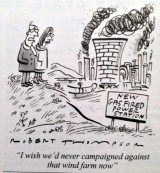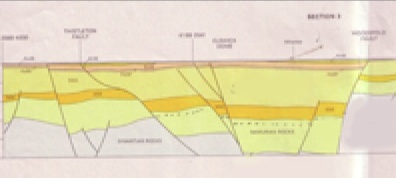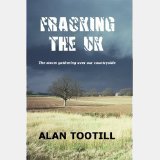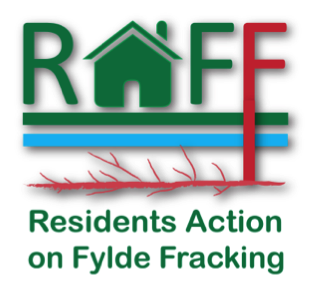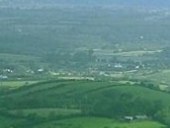What is the APPG on Unconventional Oil and Gas actually for?
 One of our readers has contacted us with a guest post which is reproduced below. It makes very interesting reading:
One of our readers has contacted us with a guest post which is reproduced below. It makes very interesting reading:
There has been some condemnation recently of MP Kevin Hollinrake, who was a Vice Chair of the APPG on Unconventional Oil and Gas. He resigned when he was made aware that it was funded by the industry.
I was reminded that this APPG does not appear to be very active, despite information about fracking being of crucial and time critical importance to the North of England; and in particular the APPG has recently cancelled two events that would/could have been enlightening.
The APPG comprises 19 MPs of whom 11 are Conservative, and has some 90 associated members from academia, the industry, environmental and community groups. It was formed to provide a forum for transparent, evidence based discussion around the issue of unconventional oil and gas development in the UK. Their website says there are still many unanswered questions such as:
- How much shale gas or oil is realistically recoverable, and at what price?
- What are the real environmental effects of fracking, and what would be the effect on local communities?
- What impact could shale gas or oil production at scale have on climate change commitments?
- What could be the impact, if any, on UK energy prices?
According to the website there was a meeting in mid-July to discuss the implications of the new Government, for the UK shale industry and future regulation of the sector, and then nothing until late October, when Andrea Leadsom MP addressed the APPG on the Government’s priorities for UK shale and the role of shale in the energy mix. The next meeting is, I am told late February, and will be a research analyst’s view on the economics of shale in the UK and the global gas market.
All well and good, but government priorities, followed some months later by an economic viewpoint, is not comparable to having hard facts and actual experience to discuss.
Which brings me to the two cancelled events….
One was a presentation by the Task Force planned for early December, which was cancelled about a week before it was due, with no new date set. It seems to me that this would have generated lively debate, not least around the statement by Lord Chris Smith, that shale gas does not have viability in the medium term, now that CCS has been cancelled.
The other key event was to have been “Better Regulation and Lessons from Canada “; and would have featured Jim Ellis, President and CEO of the Alberta Energy Regulator, and Professor John Loughhead, the DECC Chief Scientific Advisor. It was billed thus “the event will examine regulation of shale in the Canadian province and what lessons could be learnt here in the UK. “
It should have been held in late November but was cancelled a mere 12 days beforehand, with no explanation. Which seems odd, given that Mr Ellis must have booked his flights several weeks earlier, so what happened? Did Prof Loughhead suddenly find he had another more pressing engagement?
It might be that the committee of MPs are meeting in private and discussing the Task Force report or the latest on the EPA report on Water Contamination, but there is nothing on the website to suggest that they are, and a long standing associate member has no knowledge of any such meetings.
There is however no substitute for face to face questioning, for example of the Task Force and nothing whatsoever to compare with tackling the nitty-gritty of Canada’s experience, with Alberta’s own Regulator.
It is particularly disappointing for us in the North West, that this event was cancelled, as it would have been particularly valuable for both the Planning Inspectorate (who start work on the 9th February ) and for Greg Clark, the SoS for DCLG who will make the final decision.
I strongly suspect that time has run out and these events cannot be rescheduled before the Inspector starts work.
Nigel Mills, The Chair of the APPG, says :-
“my hope is that the fledgling UK industry is sincere about having an informed debate, and is eager to support work done to lift up all the stones and peer beneath them”
Kevin Hollinrake might well have been remiss in his research, but the real scandal is that the APPG is not bothering to lift the stones and peer beneath them.
And is the North West going to suffer the consequences ?
We need to talk about Kevin
 Yesterday Kevin Hollinrake resigned from the vice-chairmanship of the All Party Parliamentary Group on Unconventional Oil and Gas claiming he had not previously been aware of any potential conflicts of interests in the way the group was funded.
Yesterday Kevin Hollinrake resigned from the vice-chairmanship of the All Party Parliamentary Group on Unconventional Oil and Gas claiming he had not previously been aware of any potential conflicts of interests in the way the group was funded.
If I were an MP I think I might be aware of that there is a web site which monitors such things and I might consult it.
Once I had consulted it I might perhaps think more than twice about whether the funding listed since August 2014 might cause any potential issues if those that elected me were to question it. The list of supporters of this particular APPG is quite impressive and includes Centrica, Cuadrilla, Essar Oil, Ground Gas Solutions, Igas Energy PLC, Ineos, Ove Arup & Partners, Ove Arup International, Peel Environmental, Schlumberger Oilfield, Shale Gas World and UKOOG.
I might then look at the value of the secretarial services provided and ask myself why this particular group needed such a massive amount of secretarial support (valued at £81,001 to £82,500 – that’s an awful lot of photocopying!) compared to all but a very few of the other several hundred APPGs.

A quick scan of the register suggests that the next highest is about £50,000 and that is highly atypical, with most APPG’s receiving either zero or benefits in kind in the range of £1501-£3,000. Noticing, therefore, that this amount is extraordinarily high compared to any other APPG I might ask who provided it.
Learning that the services were provided by H & K strategies I might, even if I were innocent enough never to have heard of them, have looked them up.
At that point I might wonder how my vice-chairmanship of this group might look if I were to claim at the same time to be trying to maintain an objective and transparent position on the subject of fracking.
It seems from Mr Hollinrake’s comments reported on the Drill or Drop website that it did not occur to him to ponder any of this until it was brought to his attention by some of his constituents, and that he sent a “letter of resignation from the APPG … shortly after being made aware of the funding issue” which suggests that it suddenly became rather obvious to him that his role was prejudicing his claims to objectivity and transparency. If I have that wrong I will be happy to correct it.
I think if I suddenly discovered all this thanks to the diligence of some of my local electorate I might well, like Kevin, resign from the vice chairmanship. I’m not sure, though, that I would remain a member of the group. It is not clear from the statements on his own website whether or not he has in fact done so. I am sure all will become clear shortly though.
{edit – a list of MP members of this group received from H&K on 20th January 2016 did NOT include Kevin Hollinrake’s name, so it seems he has fully resigned from this APPG}
This is the list of members of the All Party Parliamentary Group on Unconventional Oil and Gas provided on January 20th by H&K Strategies
| Name | Party | Position |
|---|---|---|
| Nigel Mills MP | Conservative | Chair |
| Jim Fitzpatrick MP | Labour | Vice Chair |
| David Nuttall MP | Conservative | Vice Chair |
| Angela Smith MP | Labour | Member |
| Corri Wilson MP | SNP | Member |
| Chris Pincher MP | Conservative | Member |
| John Pugh MP | Lib Dem | Member |
| Steve Baker MP | Conservative | Member |
| Albert Owen MP | Labour | Member |
| John Spellar MP | Labour | Member |
| Graham Jones MP | Labour | Member |
| Jeremy Lefroy MP | Conservative | Member |
| Mark Menzies MP | Conservative | Member |
| David Mowat MP | Conservative | Member |
| Lord Greaves | Lib Dem | Member |
| Peter Lilley MP | Conservative | Member |
| Andrew Bridgen MP | Conservative | Member |
| Lord Crickhowell | Conservative | Member |
| Steve Brine MP | Conservative | Member |
Interestingly our own MP here in the Fylde , Mark Menzies, was in 2013 also a Vice Chair of this very same committee. he resigned when his vice-chairmanship was questioned but remains a member of the APPG as at 20th January 2016. I cannot find any record explaining his decision to step down.
This, sadly, is where the spin gets us
Yesterday in the debate on the Energy Bill few dared stand up for fracking, but one who did was South Suffolk Conservative MP James Cartlidge. He reasoned thus:
“The point is that some of the stuff we’re hearing coming out in the media warns of terrible things that could happen.
“I don’t see how a district council would ever approve fracking applications in the current climate and yet this industry potentially offers us so much potential, we at least have to give it a go.
“Indeed shale production could create up to 74,000 jobs, with many in areas of high unemployment.”
 Now we are not convinced by the argument that because “the media warns of terrible things that could happen” the best thing we can do is “give it a go” because that might prove them wrong. It is pretty clear that Mr Cartlidge isn’t living somewhere where the first attempts at “giving it a go” (Fylde and Yorkshire) are going to affect him personally.
Now we are not convinced by the argument that because “the media warns of terrible things that could happen” the best thing we can do is “give it a go” because that might prove them wrong. It is pretty clear that Mr Cartlidge isn’t living somewhere where the first attempts at “giving it a go” (Fylde and Yorkshire) are going to affect him personally.
What is more problematic though is his repetition of the discredited claim that “shale production could create up to 74,000 jobs”. When this claim was first made by Corin Taylor (then of the Institute of Directors, but now working a Head of Communications Planning and Research for Centrica ,who own a large part of Cuadrilla’s PEDL 165, and on secondment as a Director at United Kingdom Onshore Oil and Gas – UKOOG), we analysed his methodology and found it seriously wanting.
Over time, with other studies having indicated much smaller numbers (7,000, 15,900 – 24,300 etc) this ludicrous 74,000 claim has largely been retired, so it is disappointing to see Mr Cartlidge rattling this particular skeleton again.
What is clear though is that somebody who complains that there is “a lot of hysteria about a sector” really shouldn’t be repeating hysterical claims about its potential to create jobs, but that, sadly, is how the spin cycle works. If a “factoid” is repeated often enough plenty of people will believe it. In his own words “it can be very difficult to achieve a rational, objective decision” when members of parliament are bandying about numbers and claiming potential benefits which have absolutely no basis in reality.
Cuadrilla’s Fracking Spin Cycle
Cuadrilla’s community engagement initiatives at their proposed fracking site at Preston new Road may have ground to a halt, but that doesn’t mean that they have stopped trying to influence opinion.
Cuadrilla have a long history of using PR Companies, often in a rather inept way. A leaflet created with PPS Group was censured by the Advertising Standards Authority for multiple counts of exaggeration and making misleading and unsustainable statements, and a Bell Pottinger executive speaking for Cuadrilla was taped saying “I know that everything I say sounds like utter ****** bullshit”
This doesn’t, however, seem to have dampened their enthusiasm for burning cash on PR.
How many PR companies would you guess Cuadrilla paid fees to between 1st September and 30th November 2015? One? two? Several? Seven?
SEVEN. Yes really. We have to ask why a company which claims to have so much local support needs to employ SEVEN PR / Lobbying companies in three months to get their message across. For comparison IGas and Third Energy only seem to have used one PR company each in the same period.
You can see the details on the website of the Association of Professional Political Consultants but we have extracted them here for you
| PR Company | Client | Other Related Clients |
|---|---|---|
| Edelman Public Affairs | Task Force on Shale Gas - www.shaletaskforce.uk - Funded by Centrica, Cuadrilla, Dow, Total, The Weir Group, GDF Suez | |
| Hanover Communications | Cuadrilla | |
| HK Strategies | Cuadrilla | All Party Group on Unconventional Oil & Gas, Arup, Celtique, Energie, Centrica, Essar Energy, Ground-Gas Solutions, Igas Energy, Ineos UK, Peel Environmental, The Weir Group, Total, Remsol |
| Lexington Communications | Cuadrilla | Peel |
| Portland | Cuadrilla Bowland Ltd | |
| PPS Group | Cuadrilla Bowland Ltd | Celtique Energy, Ineos Enterprises Ltd, Peel Environmental Holdings Ltd |
| Westbourne Communications | Cuadrilla Bowland | Centrica Energy |
Looking at the source data from which this table is extracted we were also struck by something which isn’t there.
We know from an admission from John Kersey of the Institute of Directors that the so-called North West Energy Task Force has its communications and administration provided by Westbourne Communications.  In the register all clients, even pro bono clients, are listed. However, the North West Energy Task Force does not appear even as a pro bono client of Westbourne Communications, although Cuadrilla Bowland and Centrica (who own a large share in Cuadrilla’s PEDL 165) are listed as clients. Now it is possible of course that Westbourne provided no services of any kind to the North West Energy Task Force over that busy 3 months for fracking PR. Indeed the @NWTaskforce Twitter account only posted 9 tweets in the period concerned which seems a bit dilatory for an organisation claiming to be a “task force”, so maybe not much was really going on in the guerilla war being waged against the insurgents in Roseacre and Preston New Road? There may of course be another more credible explanation.
In the register all clients, even pro bono clients, are listed. However, the North West Energy Task Force does not appear even as a pro bono client of Westbourne Communications, although Cuadrilla Bowland and Centrica (who own a large share in Cuadrilla’s PEDL 165) are listed as clients. Now it is possible of course that Westbourne provided no services of any kind to the North West Energy Task Force over that busy 3 months for fracking PR. Indeed the @NWTaskforce Twitter account only posted 9 tweets in the period concerned which seems a bit dilatory for an organisation claiming to be a “task force”, so maybe not much was really going on in the guerilla war being waged against the insurgents in Roseacre and Preston New Road? There may of course be another more credible explanation.
February 9th – Defend Lancashire’s Decision
On February 9th between 9 and 11 am the Lancashire groups will be joining together to demonstrate local opposition to fracking as the planning appeal on Preston New Road and Roseacre Wood starts.
Venue: Blackpool FC – Bloomfield Road Blackpool, England, Blackpool
Please see this Facebook Event for further details
And don’t Dilley Dally on the way
The Daily Telegraph reported yesterday on the interesting story about Sir Philip Dilley, the Chairman of the Environment Agency, being out of the country on holiday in Barbados as the Boxing Day floods hit.
Now, to be charitable, everyone is allowed a holiday, and nobody could perhaps have accurately predicted Storm Eva’s arrival, but what was interesting was the way the Environment Agency apparently tried to give the impression that Sir Philip was fully in control in spite of being on holiday a few thousand miles away:
On Monday the Agency said: “Sir Philip Dilley is at home with his family over Christmas. He is in regular touch on the response to the current flooding, and available to participate in any necessary discussions.”
By Tuesday morning this had changed to: “Sir Philip Dilley is at home with his family, who are from Barbados, over Christmas.”
The Telegraph also reported that
He has previously criticised his predecessor, Lord Smith, for his slow response to the Somerset Levels, saying he arrived “a bit late” after the crisis, and saying he would not make the same mistakes
The irony is rather unmistakable isn’t it?
However, what is more interesting is the section that was subsequently edited out of the article as it stands currently . It read as follows:
We wondered if perhaps it has been removed because of some inaccuracy but we checked on Duedil.com and Sir Philip is clearly listed as a current director of Arup International Ltd.
Now, the fact that the chairman of the Environment Agency is a director of a company that has clear interests in one of its group’s clients (Cuadrilla) being successful clearly raises some interesting questions.
This conflict is highlighted by the page on Arup’s own website which makes Sir Philip’s commitment to furthering his clients’ interests abundantly clear:
The question we would like to see answered is how can Sir Philip square that otherwise laudable desire with the requirement to provide an objective and equitable service from the agency of which he is chair? We have no doubt that the individual civil servants charged with executing policy have no such conflicts, but policy does come from the top, even if the chairman concerned does only work 2- 3 days a week for his £100,000 per annum of tax payers’ money.
No doubt Sir Philip’s performance (assuming he remains in post) will now be watched with great interest by all involved.
More contextual advertising
Well Backing Fracking finally held their promised vigil – not in Preston as advertised, but hastily moved to Blackpool. They say because of the problems in Preston (which don’t seem to have phased the TUC). We think it’s more likely that they just panicked when they realised what an embarrassingly tiny crowd their “star” guest had attracted and didn’t want press photos of the turnout that they couldn’t control.
Stephen Tindale, ex-director of Greenpeace and advisor to the Task Force on Shale Gas had to suffer the ignominy of addressing a massed crowd of , er, 30 people (and that’s if we take his own assessment rather than the evidence of the photos which so far suggest no more than 20, including the contingent dragged up from Yorkshire, were there)
After a couple of days the Blackpool Gazette published an article which looks as though they just took the press release and re-printed it, but those of us without ad-blockers were treated to another outing for Pinocchio under a quote from Stephen.
Too delicious for words really, but it does bring to mind the opening words of Michael Morpurgo’s version of the tale:
“Now – there’s no point in pretending here – I was, and still am deep down, a puppet. Everyone knows Pinocchio is a puppet.”
LCC tell the government what they think!
Today, 17 December 2015, there was a meeting of the Full Council of LCC
We understand that the following motion was put to a vote
Agenda Part C – Notices of Motion submitted under Procedural Standing Order 14. 2.1(a)
“1. By County Councillor Steve Holgate:
Lancashire County Council has spent significant time and resources ensuring that the process of determining planning applications on Fracking in Lancashire has been open, transparent and well informed.
The Development Control Committee received evidence and opinion from organisations both in favour of and opposed to Fracking, as well as from local resident groups, local businesses and public health professionals.
Whilst national government is rightly entitled to take a view and determine national policy regarding energy, we believe that the determination of individual planning applications should remain with the County Council as it is best able to consider local planning issues.
The Secretary of State is a member of a cabinet with a clear policy in favour of Fracking and he has made statements in favour of Fracking.
It is therefore inappropriate for him to determine the planning appeals on Roseacre Wood and Preston New Road in Lancashire because of clear evidence of pre- determination.
Lancashire County Council requests that the Secretary of State takes no part in the final determination of the Preston New Road or Roseacre Wood appeal decisions.
Council instructs the chief executive of Lancashire County Council to write to the Prime Minister and Secretary of State informing them of the opinions of the County Council.”
We believe that the motion was carried with
45 for
1 against
18 abstentions
Well done LCC for showing some backbone and setting an example for the rest of the country!
A Tale of Two Martyrs
 480 years ago a scholar and theologian named William Tyndale was put to death, by being strangled and burned, for having committed the heresy of translating the bible into English. We have learned from The Bee that today in Preston a close namesake, Stephen Tindale – will address a vigil being held by the fracking front group Backing Fracking – “The event will also be attended by former Greenpeace executive director and co-founder of Climate Answers, Stephen Tindale, who will address the gathering and explain the positive role that shale gas can play in helping Britain and Europe meet their climate change targets.”
480 years ago a scholar and theologian named William Tyndale was put to death, by being strangled and burned, for having committed the heresy of translating the bible into English. We have learned from The Bee that today in Preston a close namesake, Stephen Tindale – will address a vigil being held by the fracking front group Backing Fracking – “The event will also be attended by former Greenpeace executive director and co-founder of Climate Answers, Stephen Tindale, who will address the gathering and explain the positive role that shale gas can play in helping Britain and Europe meet their climate change targets.”
[Update – the event in Preston did not take place. Instead, as far as we can ascertain Mr Tindale addressed a crowd of 6 people on the prom in Blackpool. There has been no news coverage of the event at all so we cannot confirm more than what we have seen so far in photos and text published by the group Backing Fracking]
Sadly though, Stephen is not coming to spread enlightenment. One might imagine that Stephen’s history as an ex employee of Greenpeace would mean that he would oppose shale gas extraction, but he is coming to support it. We thought we ought to take a look at what he has said on the subject in the past.
In 2014 Stephen wrote an article on the Climate Answers website
In this article he wrote that shale gas
“is not low-carbon enough for long term decarbonisation, unless it is burnt in power stations with carbon capture and storage (CCS).”
When he made this statement the future of CCS looked bright – The government had a £1bn competition to develop carbon capture and Deputy Prime Minister Nick Clegg and environment secretary Ed Davey both expressed their backing for CCS. Mr Davey said in 2014 “It shows the UK’s leading in the low-carbon challenge to tackle climate change and get cleaner energy.”
However, the UK government scrapped the funding for it’s flagship CCS projects in its 2015 spending review in late November, leaving the claim that shale gas can act as a bridge fuel stranded high and dry. Without CCS shale gas would be a bridge to nowhere if even the limited ambition of the 2 degrees target agreed at COP 21 in Paris is to be realised.
So based on what he wrote and what has happened since we know that Mr Tindale must now logically oppose the long term use of shale gas
So what of the short term?
In the same article Mr Tindale observes that
“even without CCS, shale gas is better than coal.”
This of course is a perfect example of a false choice – coal is not the only strategic alternative (although to be fair Mr Tindale might claim it is the only commercially viable alternative available today)
He supports his statement with this:
“Shale gas from properly regulated sites has a lower carbon footprint than coal does.”
(Our emphasis)
However, he clearly did not, even in 2014, have confidence in the regulators in the UK, as he points out that
“The Environment Agency has a good track record in regulating pollution, but needs to be adequately resourced. Like other public bodies in this age of austerity, it is having its resources reduced substantially. The UK government must now accept – and say publicly – that UK shale gas extraction will only be consistent with our climate obligations if it is overseen by a well-funded regulator.”
Following on from this in Mr Osborne’s Autumn Statement 2015 it was announced that the already beleaguered environment agency would have its budget slashed by a further 15% whilst DECC would lose 22% over the next 4 years.
Clearly the commitment from government that Mr Tindale said was a pre-requisite is so far from being reality that he must now be extremely concerned.
It should be noted that these are in addition to the austerity cuts about which Mr Tindale expressed his real concerns in his 2014 article . Could he seriously claim today that he is satisfied with the capacity of the regulators in the UK to “properly regulate” the shale gas industry?
In his 2014 article Mr Tindale also stated that
“Shale gas will not prevent investment into renewables.”
but, as we all know, this is precisely what has happened, with the Government announcing their intention to treat fracking applications as Nationally Significant Energy Infrastructure Projects whilst at the same time destroying the solar power industry by announcing a 98 per cent feed-in tariff spending cut. The resulting uncertainty and lack of confidence in the consistency of government policy-making, ironically also threatened investment in shale gas.
His case for short term use of shale as seems to be predicated on the idea that
Gas is less bad in climate terms, and also a more efficient back-up fuel than coal is for intermittent renewables like wind and solar power. The first climate priority is to stop burning coal.
Whilst the subject of fugitive methane emissions, which is the fulcrum on which this argument is balanced, remains hotly debated the evidence emerging from the USA seems to contradict this statement. The original research by Howarth, Santoro and Igraffea which suggested that the footprint for shale gas is greater than that for conventional gas or oil when viewed on any time horizon, but particularly so over 20 years has been contested by the industry with contradictory studies being put forward, but recent research (Nov 15) has shown that methane emissions are 90% higher than the previous figure from the Environmental Protection Agency’s Greenhouse Gas Inventory. This last paper cannot be easily dismissed by the pro-frackers as it is is the most sweeping study to emerge from the Environmental Defense Fund’s $18-million project to quantify methane leaks from the natural gas industry. It was written by 20 co-authors from 13 institutions, including universities, government labs, EDF and private research firms.
Reacting to this news, Prof Robert Howarth, one of the authors of the report which originally brought this issue to our attention, stated “Using this new information as well as other independent studies on methane emissions published since 2011, and the latest information on the climate influence of methane compared to carbon dioxide from the latest synthesis report from the Intergovernmental Panel on Climate Change released in September of this year, it is clear that natural gas is no bridge fuel.”
By September 2015, however, Mr Tindale in a new article, “The Climate Case For Shale Gas“, appears to have dropped his arguments for long term use of fracking as he has realised that the required CCS is now just a mirage.
Instead he now concentrates his arguments on the premise he stated in the second part of his 2014 article, that shale is cleaner than coal and better than imported LNG.
“Renewables are better. But we cannot afford to make the best the enemy of the good. Only seven per cent of UK energy came from renewables in 2013. Even if the goal is to get all energy from renewables, this will not be achieved any time soon. The only country that has set itself a target to reach 100 per cent renewables for all energy (heating and transport, as well as electricity) is Denmark. The Danes have a reasonable chance of meeting their target year of 2050 because they are well ahead of the UK.”
and
Shale gas is better for the climate than coal or LNG. The Task Force on Shale Gas, of which I am an advisor, published a report on the climate impact today. This concludes that, provided it is well regulated to minimise emissions of methane (a powerful greenhouse gas), fracking does not result in higher emissions than conventional gas extraction does. So shale gas is much better for the climate than coal is. In 2011 three Cornell University professors published a paper arguing that, because of methane emissions during fracking, shale gas is actually worse for the climate than coal is. The task force does not agree; they cite instead a forthcoming paper from the Sustainable Gas Institute at Imperial College which reviews 424 academic, government, industry and NGO publications, and concludes that, even taking account of emissions from the supply chain, shale gas is only 41-64 per cent as climate-damaging as coal is.”
There are several problems with Mr Tindale’s argument here.
The argument on fugitive emissions looks set to run and run, but even an industry PR admitted recently at COP21 that the argument against coal was struggling due to emissions . Margaret Mistry, Head of Sustainability Communication at Statoil, stated:
“Methane emissions and reducing those, I think that the goal there that we’re all working towards as an industry is to demonstrate that natural gas can compete with coal when it comes to climate effects.”
Clearly she realises that they are still working to demonstrate that shale can even compete with coal in terms of full life-cycle emissions – not that it is proven (as Mr Tindale suggests) that “Shale gas is better for the climate than coal”.
Another issue is that there is no chance that fracking will be developed in the UK in time to replace coal. Even the most optimistic forecast don’t foresee extraction at a commercial scale before the early years of the next decade and without CCS it would be impossible to continue beyond 2030 without busting our carbon budgets. Even Mr Tindale agrees with this as he Tweeted this week
It’s ok until 2030, but not for longer than that if UK is to meet carbon budgets
It seems to me that it would be hopelessly naive to expect that an industry which gets into its stride in the early 2020s would then voluntarily agree to be shut down when CCS fails to materialise at a commercially viable scale. Stephen though is full of Panglossian optimism as he tweeted this week that the Government would be able to shut the industry down if necessary
By tightening the Emissions Performance Standard and applying it to existing capacity as well as new.
We’ll wish him luck with that one. We don’t share his faith. Indeed we think being a little bit fracked is a bit like being a little bit pregnant.
Additionally in 2012 the Committee on Climate Change has said that the construction of significant new gas-fired power generation capacity would be “completely incompatible” with the UK’s legally binding climate change targets.
Perhaps most crushingly though his own Task Force on Shale Gas is on record as stating:
“To ensure the longer-term adoption of renewables and low carbon energy, the Task Force is calling on Government to expedite the development of Carbon Capture and Storage (CCS), and measures should be taken to ring-fence Government energy revenue streams for investment in R&D and innovation in renewables and low carbon energy generation, storage and distribution.”
The government however has recently performed a U-turn on CCS and far from investing R&D and development of renewables it has removed support from them, thus chopping the legs from under what was a burgeoning industry. Only this week, Chris Smith, the head of the Task Force described the government’s reversal of policy on CCS here as “absurd”
This U-turn by the government also led in December 2015, to Professor Paul Younger saying that the government had now “fatally undermined” the case for shale gas. The fact that such a ardent supporter of shale gas should so publicly recant should surely give Mr Tindale pause.
His argument for using indigenous shale gas rather than imported LNG seems to be based on two things. Firstly that LNG is marginally more damaging in terms of GHG (estimates suggest a 10% differential), and secondly that LNG has to come from regimes which he considers unsavoury. He says:
Much comes from Qatar as LNG, which represents unnecessary climate pollution. In future, significant quantities may be imported from Russia, which certainly does represent a security threat. Most of the money paid for Russian fossil fuels ends up in the Kremlin. Putin could not afford to wage his wars without this revenue. Locally produced shale gas could also reduce the need to import gas from countries which do not respect human rights. Qatar is a constitutional monarchy which gives no rights, and little protection, to its many migrant workers. Russia is a sham democracy which tramples on the rights of its own citizens as well as those of its neighbours. And the EU wants to build a pipeline to bring gas from Azerbaijan to Europe. Human Rights Watch report that “torture and ill-treatment persists with impunity” in Azerbaijan.
It is puzzling that Mr Tindale does not seem to be aware of the LNG import and (2 million cubic feet) storage facility being built by Swiss based Ineos at their Grangemouth plant. This is being built specifically to import shale gas from the US. Centrica PLC have already signed an agreement to bring in 85 bcf a year of gas for 20 years from USA. This is a significant development given that annual average imports from Qatar (by far the most important source historically) for the last 5 years have been around 500 bcf and for the last 2 about 350. This volume from the USA looks set to increase as the USA relaxes its previously strict export controls on gas.
Although the USA does have a record on human rights which is open to question, it is not generally considered to be on a par with the regimes which Mr Tindale cherry picks here to sustain his argument.
Finally he states:
But if the objective is to protect the climate, which is what it ought to be, shale gas should be used as part of the low carbon transition. And some of the revenue the government receives from fracking should – as the task force recommends – be used to support renewables, advanced nuclear and carbon capture and storage. This would ensure that a UK shale gas industry enhanced rather than inhibited the development of clean energy.
However, given what we have already seen from our government, the chance that they would channel the revenue from fracking into renewables is vanishingly small.
As a recent (October 2015) report from the Department of Environmental Science, Xi’an Jiaotong-Liverpool University states: “Fracking cannot be reconciled with climate change mitigation policies”
Put simply, academic opinion is now clear that unabated gas can never be seen to be either sustainable or green, and Mr Tindale’s continued support for it is putting him on the wrong side of the argument.
As John Ashton, who served as Special Representative for Climate Change for three successive UK Foreign Secretaries, spanning the current Coalition and the previous Labour Governments, says:
“You can be in favour of fixing the climate. Or you can be in favour of exploiting shale gas. But you can’t be in favour of both at the same time”
Successive governments have failed to address the issue of climate change and have failed to invest in alternatives to fossil fuels. This means we inevitably face some difficult choices over the coming decades, but anyone proposing the answer to be shale gas is clearly asking the wrong question.
William Tyndale’s last words before his death were “Lord, open the king of England’s eyes.” We can only hope that somebody opens this government’s eyes before it is too late.
In the meantime our modern day Tindale still has time to recant and save his reputation from the flames.
Lord save us from badly informed academics
Today in Parliament MPs will vote on the secondary legislation via statutory instrument on fracking in protected areas.
Radio 4 carried an article on the Today programme this morning on the vote and invited Professor Richard Davies of Durham University’s ReFine group to comment.
Profesor Davies was dismissive of the issues raised and clearly stated that as far as he was aware fracking from the surface would not be permitted from the surface of a National Park by the legislation. His actual words were as follows
“Well, firstly, the fracking starts from something called a well pad and a well pad is the size of a cricket pitch1, so you may see a cricket pitch area of land which can’t be, as I understand it, in the National Park. It has to be to one side of the National Park”
Perhaps he’s been too busy researching and refining other things to look at the relevant statutory instrument (as some of those opposing fracking have done). The SI only deals with the depth at which the act of fracking can take place (by defining a protected area as “any land at a depth of 1200 metres beneath a relevant surface area”). There is in fact nothing in the SI which prohibits any fracking-related surface activity in a groundwater Special Protection Zone. Neither is there anything which prohibits surface activity in a National Park or in an Area of Outstanding National Beauty. Additionally, there is nothing which prevents surface activity OR fracking in Sites of Special Scientific Interest (SSSIs) at all, in spite of the “outright ban” on fracking in these areas promised by the Government. For more detail on the limitations of the Statutory Instrument please refer to this article.
This is not just our interpretation. This extraordinary exchange took place during the committee meeting which sent this SI to the House on 27th October 2015
Christian Matheson:
I accept what the Minister is saying: the regulations deal with what is happening far below ground level. But for that to happen far below ground level, something has to happen at the surface. Frankly, I cannot see why the Minister is making that rather false distinction.Andrea Leadsom:
I am grateful to the hon. Gentleman because he gives me the chance to repeat what I said, which is that the Infrastructure Act required the Government to lay regulations to deal with the hydraulic fracturing process, which happens far below the ground. We will, as soon as possible, make a statement regarding the areas on ground level—the surface drill level—in which activity will be banned. We are looking very carefully at how to define and protect our most valuable areas. We will be making announcements shortly, but that is not for today. These regulations are the consequence of a requirement in the Infrastructure Act to deal with the subsurface implications, so I will move on
So it is clear that Minister herself accepts that the SI, being laid before Parliament for a vote today, is deficient in terms of fulfilling the promise of an outright ban on fracking in National Parks and AONB made back in January in a frantic effort to garner support for the Infrastructure Bill of which this SI will form a part.
Again there can be no doubt that this promise was made. It is quoted on a government web site
The Government’s commitment is to an outright ban on fracking in National Parks, Sites of Special Scientific Interest (SSSI) and Areas of Outstanding Natural Beauty (AONB).
Given all this it is frustrating to hear the article on Radio 4 giving air time to somebody who, if they are not deliberately misleading the public, is spectacularly ill informed. Perhaps next time Radio 4 might be more discriminating in their choice of “expert” as today they appear to have been party to propagating a piece of gross misinformation.
Note:
1. As an aside Professor Davies comparison with a cricket pitch is also totally misleading. A cricket pitch consists of the central strip of the cricket field between the wickets — 1 chain or 20.12 m (22 yards) long and 3.05 m (10 feet) wide. This would give a surface area of 61.4 square metres. A frack pad according to UKOOG would require a site of about 2 hectares or 2,000 square metres so Professor Davies is misleading us there by a multiple of 325. Even a cricket ground conforming to ICC Standard Playing Conditions at 16,000 – 20,000 square yards would be around 20-35% smaller than a 2 hectare frack pad.)






